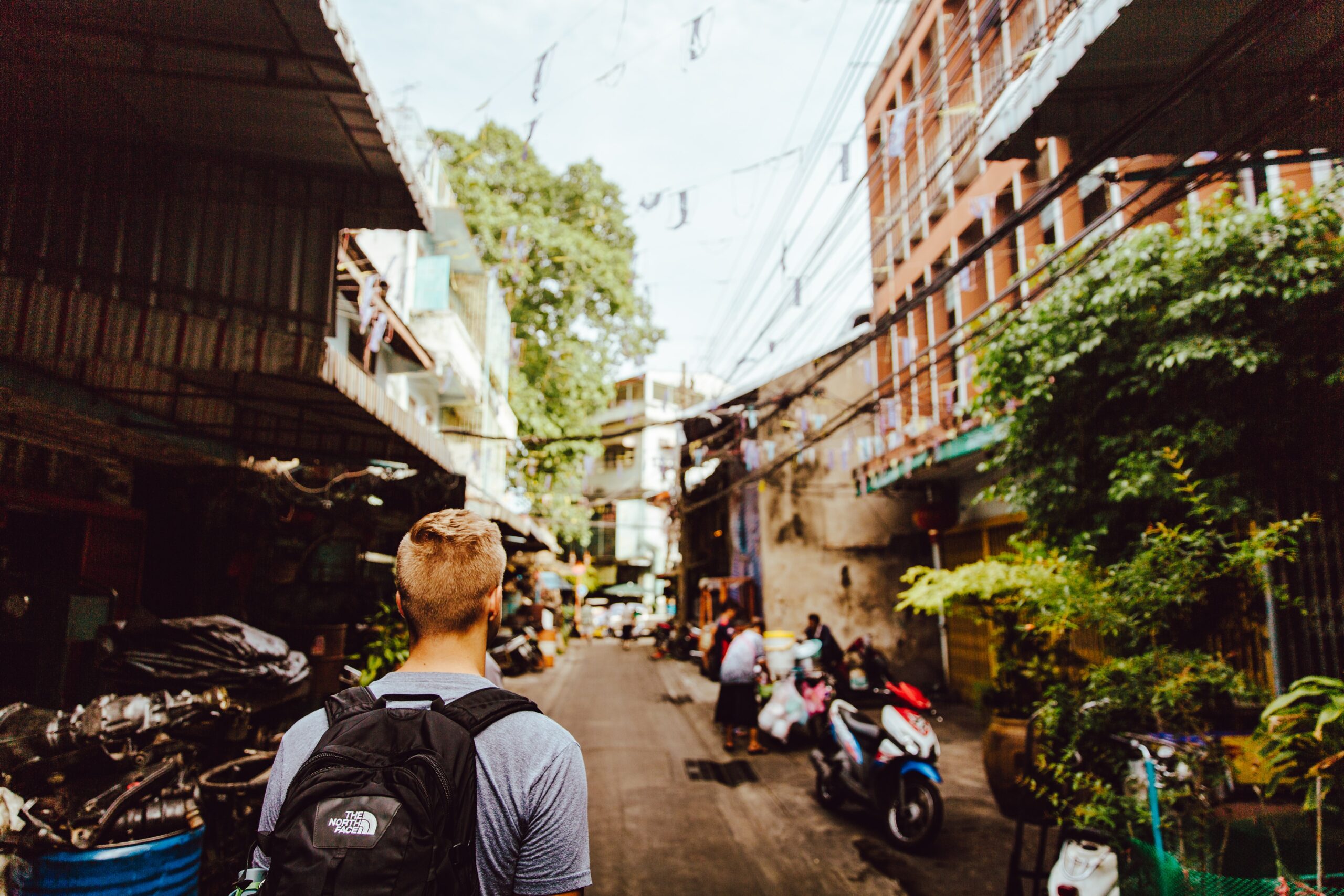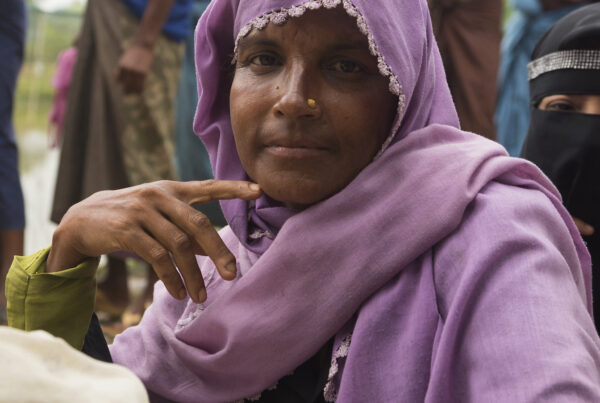Just as the human trafficking industry is hidden, so must be the undercover work of our national operatives. The men and women who devote their time to investigative work for The Exodus Road put themselves in danger each time they go out on the streets to search for trafficked children. The work is dark and filled with traumatizing experiences as these operatives witness adults and children purchased for abuse, but it is because of these brave and determined individuals that so many continue to be set free from the repeated rape that is known as sex trafficking. These men and women are the true heroes of The Exodus Road community.
While we can’t share his real name to protect his identity for security concerns, we would like you to meet Leo, one of our national operatives on CHARLIE Team in Latin America. The following are a few excerpts from an interview we conducted with him while visiting our field office where he works.
Meet Leo
Leo* is an undercover operative looking to find and free victims of sex trafficking. Leo, like many of our national operatives, has previous experience in his country’s military. He has a wife and two young daughters.
Why did you decide to work with The Exodus Road?
“When I retired from the military, I learned about the missions and goals of The Exodus Road and I thought of my daughters. I can only imagine what it would be like if this happened to them, and something moved me inside and I said, ‘Ok, I want to be a part of that.’”
What does your family think about your job?
“My family is used to me working in dangerous situations because of my previous work with the military. They tell me to be careful but ask me to please go free those kids. They are kind of worried about it, but they support me in what I’m doing. Their support is really important.”
What do you do to prepare physically, mentally, and emotionally?
“I receive training from The Exodus Road, and I focus on the survivors and their rescues. I also receive support from the people at my church who support this work. It’s very good. They give me counseling and encourage me to never give up.”
What does a normal day look like for you?
“Usually, I’m the guy in the office that plans the operations. I decide what neighborhoods we’ll go into, which places we’ll enter, and then we get the equipment ready. We are focused on the victims, trends that we see with the traffickers, the establishments that allow the trafficking, the spotters, and bouncers. We find that not only the girls give us good information, but also the waiters and bouncers, and sometimes even street vendors. Sometimes we are out until four or five in the morning gathering information. Then the next day we take all we’ve learned and analyze and classify that information.”
What are your work hours like?
“We usually work during the day and the night. After a long night, we may take a little rest the next morning before we continue working. But sometimes we’ll be back in the office by 8:30 am. It just depends on the places we visit. Some open at 9 am and operate until 9 pm, others open later. So our hours really depend on what project we’re working on. In the office, we classify information, edit, and create reports for the police.”
What kind of information do you collect?
“We start by trying to find out about the establishment, by talking with people about when they have the most minors. For example, maybe Thursday, Friday, and Saturday a place will be full of minors. We try to gather information about security. Some places have a lot of security and search customers. So we gather information on the establishment before we ever enter, and then we talk with the police to find out what information they need us to collect once we’re inside.”
How long does it take to gather all the information you need?
“Every place is different. Sometimes it only takes a week, other times it can take a month. It really depends on the area.”
What keeps you going?
“I know that in Latin America there is a lot of child exploitation. Part of it might be due to the fact that there’s a drug culture, some people have a lot of money to exploit the minors, and they’re just used to abusing kids. So I’m inspired to do the best job I can do to help the police — at the end of the day, it’s their job to make the arrests. We cannot do the rescues without them.”
What is the best part of your job?
“The accomplishment of rescuing these survivors. It’s very important to me because of my daughters… these minors are sons and daughters.”
Can you tell us about the Naranja* neighborhood?
“Sure. This place was downtown in the city. I found this area by talking with a street walker. I was posing as a John. She asked me what I was looking for? I told her I liked little girls. She asked if I liked some young girls that were over on the corner. That day there were four or five girls, and they were about ten to twelve years old. She said they were working on the street and that there were usually even more on Fridays, between ten and twenty of them. So, we went back on a Friday and saw 18 little girls there, from about ten years old up to sixteen. We have to talk to them like Johns and ask them how much they charge. One girl said they charge about $10 USD. I asked her where they were allowed to go, because prostitution in this area is illegal. She told me that one particular hotel let them bring in customers and would collect $1.50, and then the girls charged $7.”
Did the girls keep the $7 or does it go to a pimp?
“There was a gang there that always hung around, smoking drugs and drinking and they were always keeping an eye on the girls. Sometimes they leave to get more marijuana and cocaine, but they’d always be back to guard them. I’m sure the girls have to give them some of the money, but I don’t know how much. It was too risky for us to try to speak with the gang.”
How do girls this young come to be trafficked on the street?
“It starts with poverty. Most of them come from the poorest neighborhoods in the city. Also, there are some there because they have fled political crises in other countries. These girls as young as ten and eleven will tell us that they left their country about six months ago, or were homeless and living on the streets. The gang will take advantage of them and say ‘ok, I’ll protect you but you have to work.’ Something like that. And sometimes the girls will have siblings or family with them – they’ll say, ‘that’s my sister, or my brother. Or my cousin.’”
Can you tell us about an operation that really impacted you?
“We were able to rescue over 40 survivors in this operation. I met a young woman in this place who was about twenty five. Her name was Nicole. She just opened up to me and told me how her husband had been killed by rebel soldiers, and that she had three daughters who were three, five, and six years old. She fled her country because of the wars and started working in a restaurant but she wasn’t making enough money to feed her children. They were dying of starvation. So she chose to come to this place because she really needed money and she said ‘I hate this. I hate this because here I have to be with Johns and drunks.’ It was so sad to hear her story. We said goodbye and then we went back to make a report for the police about the place. Because of that, they were able to rescue (so many) victims, and I think she was in that rescue.”
Is there anything else you would like to tell us?
“Yes, I want to say thank you to the people who support our work at The Exodus Road. Because of you, we feel like we aren’t alone in this fight. It’s nice being all together on the same team. We are like a big family.”
We are so grateful to our national operatives, like Leo, for their dedication and courage to seek after sons and daughters and fight for their freedom.
We invite you to sign up for our rescue announcements by texting the word “RESCUE” to (727) 273-7283. We’ll send you text messages of successful missions — perhaps even missions that Leo has worked directly.
You can also join Leo’s monthly support team by becoming a part of our Search + Rescue Team. As a part of our Search + Rescue Team, you also have access to our private Facebook group where we share up-to-date stories and the work of our investigative teams.
* Leo and Naranja are representational – the actual name and location are classified to protect our national operatives and police. For security, we are also unable to share the actual country of operation where TER works in Latin America.


.png)








